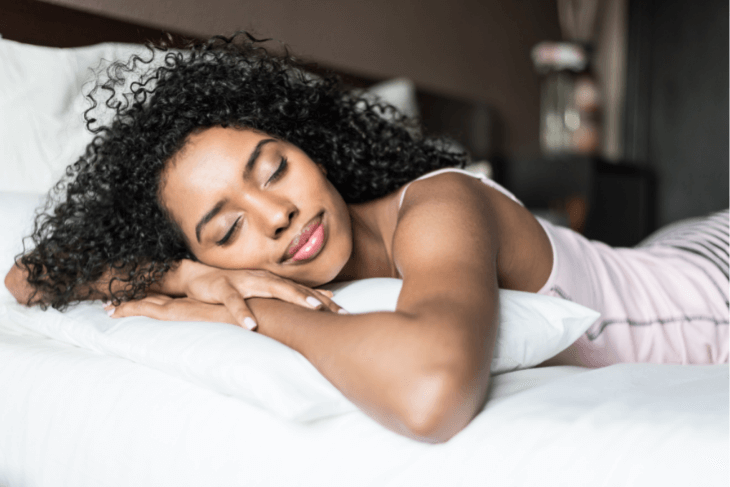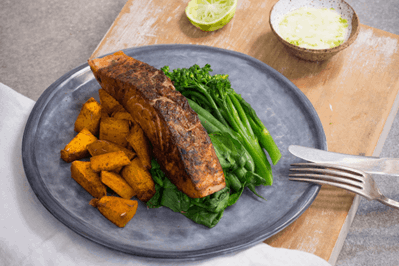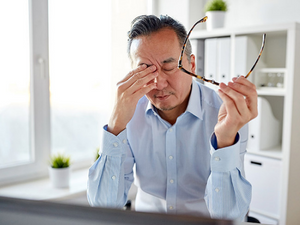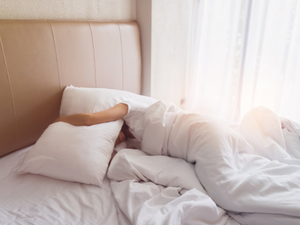What to eat for a good night's sleep

Sleep is important for just about every function in your body. It’s also a time when your body can perform functions it can’t focus on during the day. While you sleep your body gets to rest and recover from all the hard work it does every day, it’s when your muscles use the amino acids from your protein-rich diet to repair themselves and grow after your workouts, and when your brain processes memories. Getting a good night’s sleep can also help you lose weight!
You know the food and drinks that stop you from getting a good night’s sleep (we’re looking at you coffee, sugar and alcohol!), but what about the foods that help you sleep?
Keep scrolling to discover what to eat for a good night’s sleep.
Kiwi fruit
Kiwi fruit might be a bit of a surprise entry on this list, but research shows the humble fruit could actually help you get better shuteye! Different studies have found that when participants who experienced sleep disorders ate two kiwi fruits one hour before bedtime, their overall sleep quality significantly improved.
The jury is still out on what it is exactly about kiwi fruit that makes it such a good pre-snooze snack, but some researchers suggest it could come down to the fruit’s high antioxidant content, as well as its high folate and serotonin content.
Nuts
Nuts are a great source of a range of beneficial vitamins and minerals. And when it comes to the types that can help you sleep, try these nuts of note: pistachios, almonds, Brazil nuts, walnuts and cashews.
These nuts are particularly high in minerals like melatonin, magnesium, zinc and selenium, which all contribute to improved sleep quality.
Save some of your Healthy Fats & Oils units for a small handful of nuts after dinner to help you fall sound asleep.
Oily fish
Oily fish, like salmon, sardines and herring, have been linked with improved sleep quality. These types of fish are one of the few dietary sources of vitamin D (exposure to sunlight being the primary source), and they’re also one of the best sources of omega-3s.
In a study published in the Journal of Clinical Sleep Medicine, researchers found that regular consumption of Atlantic salmon (three times a week) resulted in overall higher sleep quality. The researchers suggested this could be down to the increased vitamin D levels in the study participants.
There is also a growing body of research behind the intake of omega-3s and sleep quality. If your levels of these healthy fatty acids are low, then eating oily fish a few times a week (or taking a supplement if you don’t eat fish) could bring your levels up and be beneficial to your overall health – including sleep quality.

Recipe: Jerk salmon on greens with lime mayonnaise
Tart cherries
Like kiwi fruit, tart cherries might seem like an out of left field food that can help you sleep, but there’s some pretty convincing research behind this fruit, too!
A 2018 study found that in a group of participants who were over 50 years of age and who experienced insomnia, drinking 240 millitres of tart cherry juice two times a day for two weeks increased their sleep time and sleep efficiency. While the study only had a small sample size, it did show that the tryptophan availability in the participants who drank the juice increased. Tryptophan is an amino acid that boosts melatonin, the hormone that helps you sleep. The researchers concluded that this could be one of the reasons behind the success of the juice as a sleep aid.
Milk
Did you grow up believing a warm glass of milk before bed would help you sleep? Surprisingly, there is actually some scientific validity behind this traditional remedy.
One 2018 study of hospital patients found that a twice-daily consumption of milk and honey together for three days significantly improved their sleep quality.
Milk is a good source of tryptophan, as well as vitamin D and B vitamins, which could all contribute to its sleep-inducing qualities. Whether you drink it warm or cold (the science is out on what temperature is best), there’s no harm in enjoying some milk before bed. Plus, it’s a great way to use any leftover Dairy units for the day!
Are you trying to lose weight? Read our comprehensive guide on weight loss to understand where to begin, what happens when you lose weight, and what doesn't work when it comes to dieting.
While it can be tempting to think eating enough of a certain food will improve your sleep, it’s important to note that good sleep relies on an overall healthy lifestyle. That includes eating a balanced diet that includes the above foods, as well as being physically active and managing stress. Take a look at our blog on 7 tips to improve your beauty sleep for some more ideas on how you can sleep better tonight.


